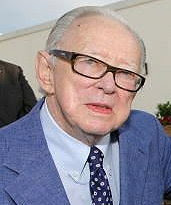Shah Rukh Khan starrer ‘Dulha Mil Gaya’, which was Trinidad and Tobago’s historic entry into the Bollywood movie arena, is one of the top films being shown in Port-of-Spain and Chaguanas as part of the first Indian film festival in the country.
‘Dulha Mil Gaya’ was filmed in this country. With a mega star cast of Shah Rukh, Sushmita Sen, Fardeen Khan and Ishita Sharma, it broke box office records here. This is one of 11 specially-selected Indian movies reflecting the various ethnic, cultural and geographical locations in India.
The festival began Wednesday and will be on till Nov 23 to mark 75 years of Indian films in this oil-rich nation.
At the formal launch of the festival at MovieTown, Indian High Commissioner Malay Mishra said Indian films moved from tents to cinemas, multiplexes and entertainment centres. ‘Dev D’ featuring Abhay Deol, Kalki Koechlin and Mahi Gill was shown to over 400 guests.
Nella Khan, parliamentary secretary in the Ministry of Arts and Multiculturalism, in her address, noted the importance of culture and art.
She said art and culture provide ‘an ideal vehicle for strengthening and deepening the bonds between countries and a way to reach out beyond government and institutions to the people.’
Khan said: ‘Through this window of films opened to us, we would be able to enjoy and learn the many different languages, peoples and cultures of the world and its diversity. The importance of this festival cannot be underestimated in the light of the importance of Indian music and culture in this country.’
This film festival marks the 75th anniversary of the first Indian movie shown here. It was brought here by the late and former councillor of the Port-of-Spain City Council, Ranjit Kumar, an engineer by profession in 1935. Kumar is credited for the construction of Wrightson Road, and several other engineering structures in this country in the pre-independence era. A special guest was his daughter, Catherine Kumar, CEO of the Trinidad and Tobago Chamber of Industry and Commerce.
Other dignitaries were press secretary to Prime Minister Kamla Persad-Bissessar, and High Commissioner-designate to the United Kingdom, Garvin Nicholas; Caricom Cultural Ambassador Manadal Daaga; chairman of Movie Town Derek Chin; president of the National Council of Indian Culture (NCIC) Deokienanan Sharma; community activist Utrah Ramoutar; and Hans Hanoomansingh.
Mishra said the Indian film industry connection between Trinidad and Tobago and India was very close. He said there was much more to Indian cinema than Bollywood. Mishra said the entertainment sector was being looked at as a strategic sector, and there are plans ahead to do co-productions with the University of the West Indies’ Film Department.
Mishra read a letter sent by Raghu Menon, India’s secretary of information and broadcasting, commending the high commission for ‘its timely initiative’ as Indian cinema has gone global and is part of mainstream entertainment throughout the world today.
Menon said Indian films have won awards for making strides in the Westren film industry.
‘The Film Festival opens up avenues for cooperation between Trinidad and Tobago and India in the domain of cinema in the future,’ he said. There was a need ‘to bring Indian cinema to the diaspora in its cultural diversity as this was the best reflection of society’, he said.
On the chart for the festival are ‘The White Elephant’, ‘Haat’, ‘Kutty Srank’, ‘Harischandrachi Factory’, ‘Dharm’, ‘Gulab Talkies’, ‘Kanchivaram’, ‘Janala’, ‘Little Zizou’.
The Indian diaspora comprises 44 percent of a population of 1.3 million people, and since the introduction of Indian movies, the diaspora considers cinema as one of the major links with India.
Especially on weekends, thousands of Indian families will visit scores of cinemas scattered across the country. The cinemas were owend by Indian owners. The diaspora was first introduced here between 1845 and 1917, principally from Uttar Pradesh and Bihar, to work on sugar plantations.














































